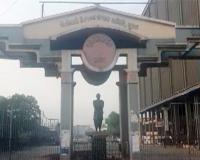Surat Airport: The New Hub for Ingenious Gold Smuggling Tactics
Authorities Baffled by the Use of Aqua Regia in Transforming Gold into Untraceable Paste

In recent times, Surat airport has gained a dubious reputation as the prime location for a growing trend in gold smuggling. Innovative smuggling tactics involving the use of chemicals have presented a challenge to law enforcement and customs officials.
In their relentless pursuit of illicit profit, smugglers have been resorting to extreme measures. They've been ingesting gold in capsule form or resorting to other unspeakable means of concealment, but recently, a new approach has surfaced – transforming gold into an untraceable paste.
In several recent busts, officials have discovered smugglers carrying gold not as conspicuous solid metal, but as a seemingly innocuous paste or ointment. The method used to achieve this transformation involves the use of a chemical known as aqua regia, a potent liquid capable of dissolving gold and other noble metals.
Noble metals, including gold, silver, rubidium, lead osmium, are characterized by their resistance to corrosion. Aqua regia, a powerful solvent for these noble metals, is created by mixing nitric acid and hydrochloric acid in a 3:1 ratio.
The gold smuggling process employs this chemical metallurgical technique to convert solid gold, which melts at around 1064 °C, into a paste. This can be accomplished with minimal equipment and without the need for a sophisticated laboratory setup. The end result is a gold paste that can evade detection by airport security metal detectors and be transported concealed on the smuggler’s body, or in a bottle or a zip-lock bag.
Despite the risk and complexity of the process, it is surprisingly cost-effective. It is estimated that Rs 200 is spent to create 100 grams of gold paste, with the required chemicals costing between Rs 500 to 600. From this investment, up to 200 grams of gold coating can be produced.
The final stage of this smuggling operation involves transforming the paste back into gold. This is done by sprinkling sodium bicarbonate onto the paste, a process that causes splintering and releases a significant amount of smoke. This potentially hazardous process requires careful handling due to the risk of burns.
Dr. S. K. Tank, former Chairman of the Department of Biology at Veer Narmad University, notes that every 100 grams of the resulting gold chloride is essentially pure gold. The extensive use of gold in the circuitry of many electronic devices, including computers, has led to many individuals resorting to the use of aqua regia to extract gold from electronic waste.
The increased use of this chemical process for smuggling is presenting a novel challenge for law enforcement, highlighting the constant evolution of illicit tactics in the smuggling arena.






